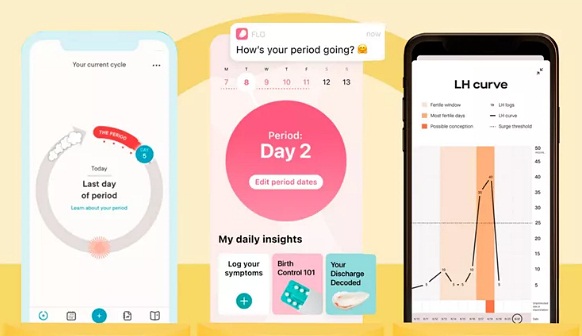London: The UK has announced it will review period and fertility apps over concerns of data security by women using the application.
The review comes after a poll commissioned by the Information Commissioner’s Office (ICO) revealed more than half of women (59 per cent) have transparency concerns over how their data was used when it comes to choosing an app.
About 57 per cent said they are more worried about how secure the platforms are than cost (55 per cent) and ease of use (55 per cent).
The poll showed a third of women have used apps to track periods or fertility.
“These statistics suggest data security is a significant concern for women when it comes to choosing an app to track their periods or plan or prevent pregnancy. That’s not surprising, given the incredibly sensitive and personal information involved,” said Emily Keaney, Deputy Commissioner of Regulatory Policy at the Information Commissioner’s Office, in a statement.
The research also showed over half of people who use the apps believed they had noticed an increase in baby or fertility-related adverts since signing up.
While some found the adverts positive, 17 per cent described receiving these adverts as distressing.
The ICO is urging users to come forward to share their experiences. The regulator has also roped in companies who provide period and fertility tracking apps to find out how they are processing users’ personal information.
The ICO aims to identify whether there is the potential for harm and negative impact including unnecessarily complicated and confusing privacy policies, leaving users in the dark as to what they have consented to, apps requesting or storing unnecessary volumes of data, or users receiving upsetting targeted advertising that they did not sign up to.
“We want to make sure women can use these services with confidence, so we’re calling for people to share their experiences. This will help us understand whether there are areas that need improvement — from how easy it is to navigate privacy policies to whether people have experienced upsetting and unexpected targeted advertising. We also know some users feel these apps bring many benefits and we’d like to hear about these too,” Keaney said.
“As with all health apps, we would expect organisations to safeguard their users’ privacy and have transparent policies in place. This review is intended to establish both the good and bad of how the apps are working currently,” she added.
Keaney noted that after more information is sourced, the organisation “will not hesitate to take regulatory action to protect the public if necessary”.
–IANS


Comments are closed.